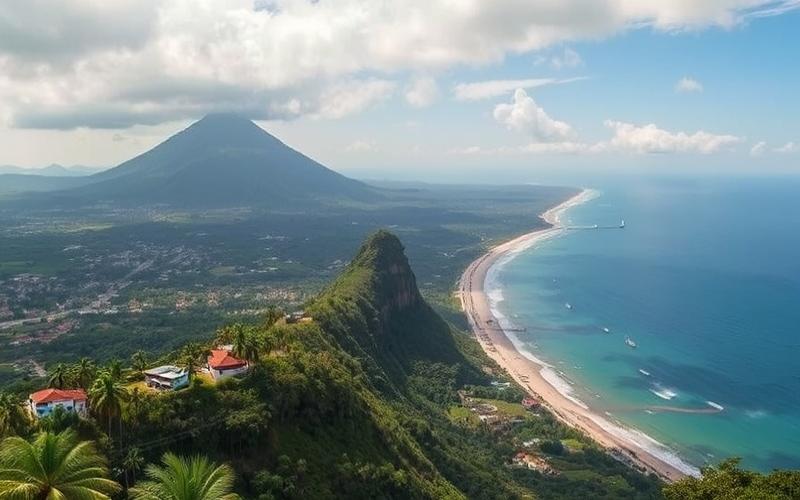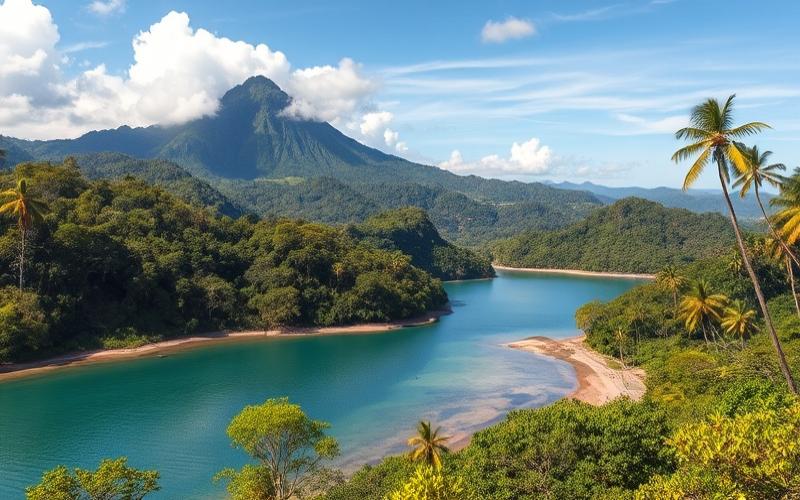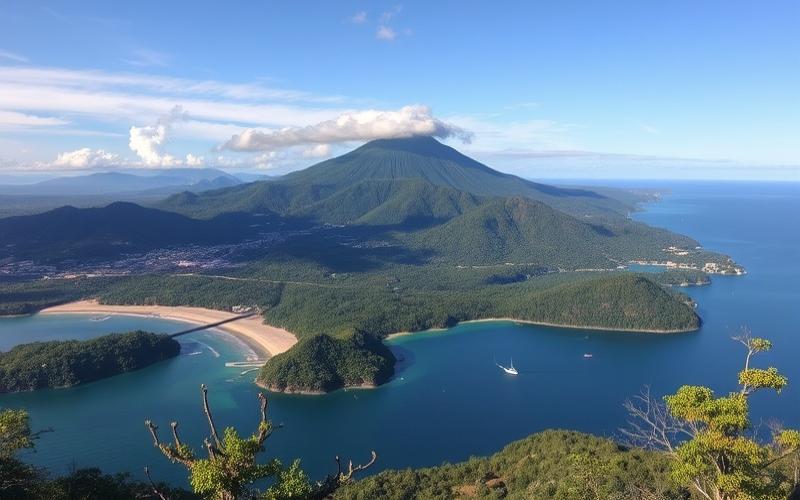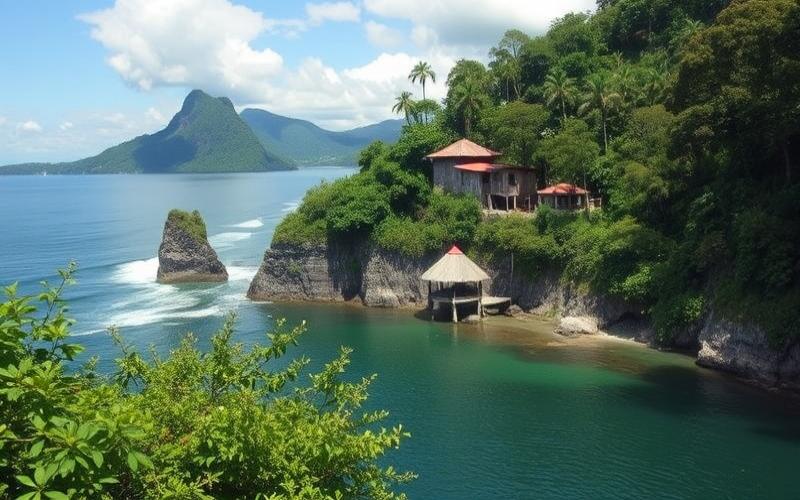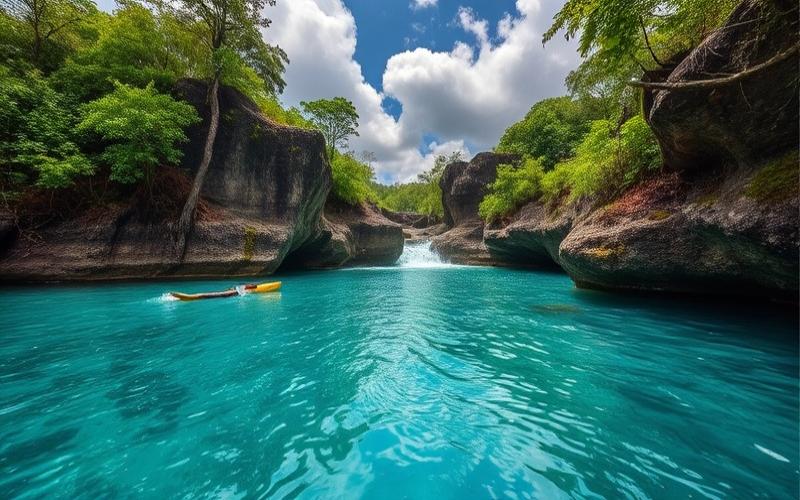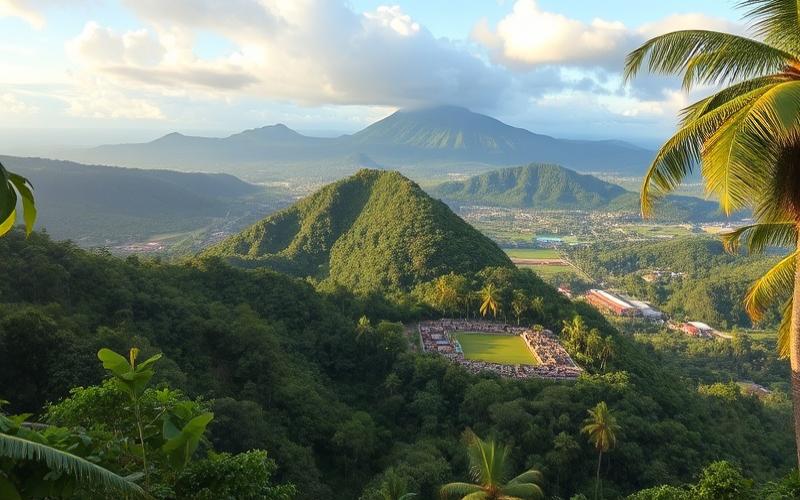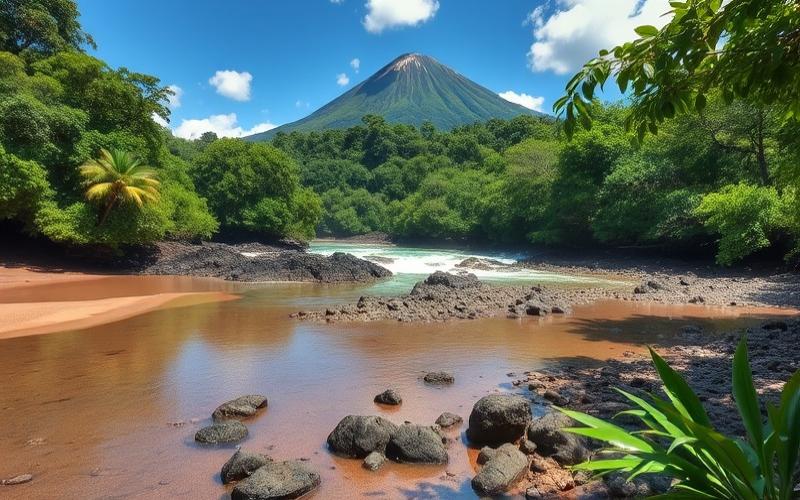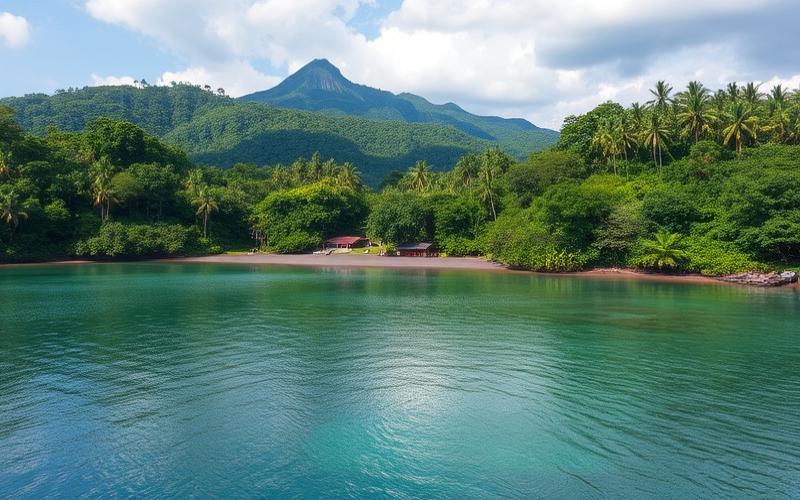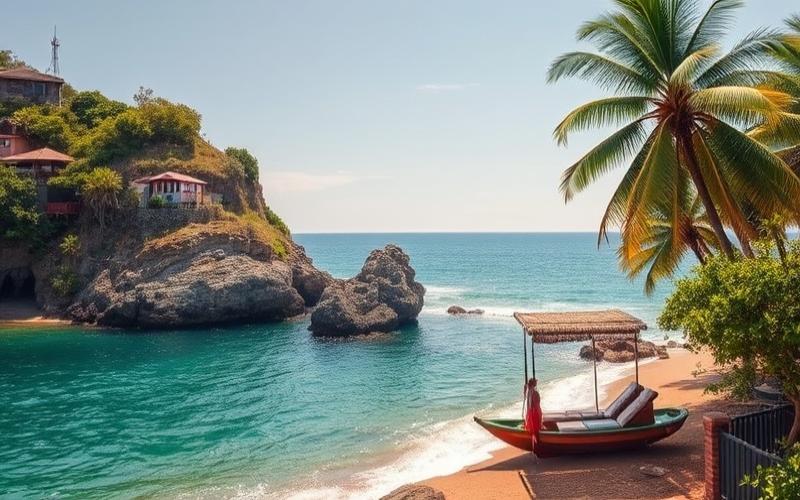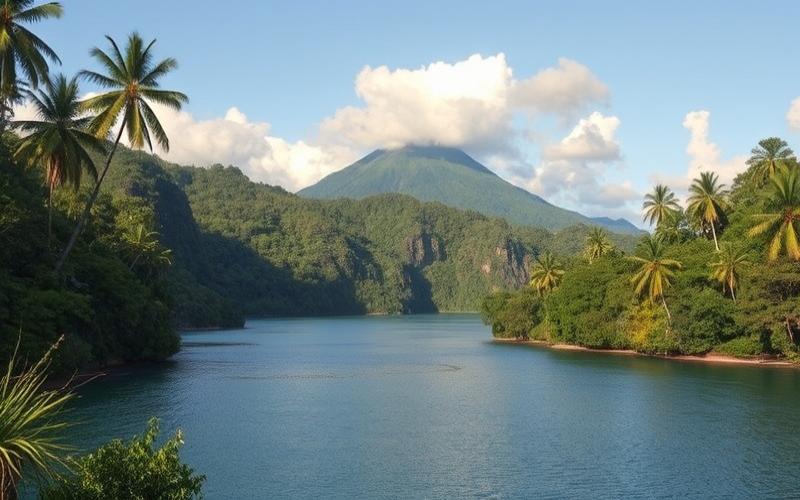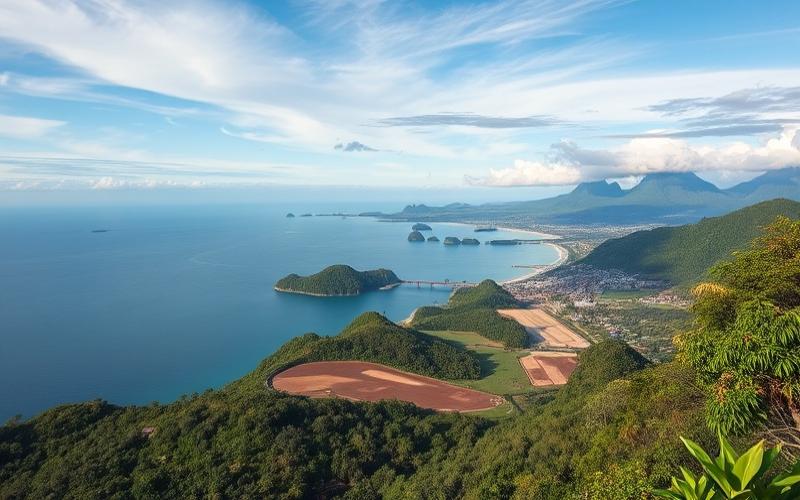
 Published on and written by Cyril Jarnias
Published on and written by Cyril Jarnias
Navigating the world of real estate transactions in Costa Rica can be complex, especially for those unfamiliar with the essential role of the notary. As key players in the real estate sector, notaries in Costa Rica go beyond simply verifying documents; they play a crucial role in the legal security of transactions.
Understanding Notary Fees
Understanding notary fees, often perceived as a vague or complicated element, is essential for anyone considering investing in the country.
Good to Know:
Notary fees generally range between 1.5% and 2% of the property value but may include additional costs depending on the transaction’s complexity.
The Notary System in Costa Rica
This article aims to guide readers through the intricacies of the notary system in Costa Rica, enabling them to navigate confidently and make informed choices for their future investments.
Understanding the Notary’s Role in a Real Estate Purchase in Costa Rica
The notary holds a central and indispensable role in a real estate purchase in Costa Rica, both for the legal security of the transaction and for protecting the parties’ interests.
Main Responsibilities of the Notary in Real Estate Purchases in Costa Rica:
- Verification of Property Titles
- Thorough analysis of the land title at the National Registry to ensure the owner’s legitimacy and the absence of mortgages, liens, or disputes on the property.
- Check of the cadastral status and any potential legal or administrative restrictions.
- Regularization of Contractual Documents
- Drafting of the authentic deed of sale, ensuring the agreement’s terms comply with Costa Rican legislation.
- Review and explanation of contract clauses to the parties, ensuring their understanding and informed consent.
- Preparation and Registration of Deeds
- Formalization of the transfer deed before a public notary (who must be a lawyer in Costa Rica).
- Registration of the deed at the National Registry, an essential condition to enforce the sale against third parties and secure the property transfer.
- Guarantor of Legal Compliance
- Verification of fund origins as part of anti-money laundering efforts (request for banking and tax documentation).
- Strict adherence to all tax and administrative obligations related to the transaction.
- Protection of Parties’ Interests
- Neutrality and impartiality in conducting the transaction.
- Advice on potential risks and measures to avoid them.
Importance of Choosing the Notary
A qualified and experienced notary masters local legislation, anticipates difficulties, and avoids errors that could compromise the transaction’s validity or lead to future disputes.
An inexperienced or negligent notary may omit essential checks, exposing the buyer to loss of rights or legal disputes.
Steps in the Real Estate Process Requiring Notary Intervention
| Process Step | Notary’s Role |
|---|---|
| Preliminary Verification | Title checks, National Registry research |
| Contract Drafting | Drafting and explanation of the authentic deed |
| Deed Signing | Formalization of the sale before a public notary |
| Deed Filing | Registration at the National Registry |
| Fund Release | Supervision of fund disbursement after registration |
Concrete Examples or Case Studies:
A foreign buyer discovers, thanks to the notary’s verification, that a property is burdened with an undisclosed mortgage by the seller: the transaction is then halted before any financial harm occurs.
In the context of a real estate inheritance, the notary ensures that the foreign will is valid and that the property allocation meets the National Registry’s requirements, thus avoiding any administrative blockage.
Key Takeaways:
The notary, both a lawyer and public officer in Costa Rica, is the guarantor of the security, legal compliance, and validity of any real estate transaction. Their intervention is mandatory and decisive at every key step of the purchase process.
Good to Know:
During a real estate purchase in Costa Rica, the notary plays a crucial role by verifying property titles and regularizing contractual documents to ensure the transaction complies with Costa Rican legislation. Responsible for preparing authentic deeds and property registration, they also ensure documents are law-compliant, thus protecting the interests of buyers and sellers. For example, when checking a property’s background, an experienced notary will detect any existing liens or disputes, preventing future complications. Their intervention is essential during key steps, such as drafting the sale deed and its registration at the Public Registry, ensuring its legal validity. Therefore, it is fundamental to choose a qualified and experienced notary, as their competence and attention to detail can make all the difference in the success of the real estate transaction.
How Are Notary Fees Calculated in Costa Rica?
The calculation of notary fees in Costa Rica follows a regulated structure, primarily in real estate transactions or estate management. These fees consist of several mandatory and variable elements depending on the nature and amount of the transaction.
Essential Components of the Fees:
- Notary Fees: Calculated as a percentage of the declared asset value (e.g., purchase price of a property or estate value). This percentage generally ranges between 0.5% and 1%, according to the official scale set by the Colegio de Abogados y Abogadas of Costa Rica.
- Real Estate Transfer Tax: 0.75% of the declared amount.
- Documentary Stamp: 0.18%.
- Residential Property Registry Stamp: 0.45%.
- Additional Legal Fees and Administrative Formalities, sometimes included in overall fees or billed separately.
| Component | Percentage/Cost | Typical Application |
|---|---|---|
| Notary Fees | 0.5 to 1% | On declared value |
| Transfer Tax | 0.75% | Purchase/Sale |
| Documentary Stamp | 0.18% | Purchase/Sale |
| Residential Property Registry Stamp | 0.45% | Purchase/Sale |
Real estate agent commissions (2.5 to 5%) are not included in notary fees but constitute a related cost during an acquisition.
Legal Scale – Minimums and Maximums
Costa Rican law imposes a decreasing scale with minimum thresholds to ensure that small acts still receive fair compensation:
- An absolute legal minimum applies to acts below a certain threshold (common example: approximately USD 100–200).
- For significant transactions (>USD 500,000), decreasing rates may apply; beyond a certain level (e.g., USD 1 million), the marginal rate is lower.
Simplified Example – Real Estate Purchase
For the acquisition of a house valued at USD 200,000:
- Notary Fees (at 1%) = USD 2,000
- Transfer Tax = USD 1,500
- Various Stamps = approximately USD 1,260
Estimated Total “Closing Fees”: nearly USD 4,760, excluding possible commission.
Simplified Example – Estate Management
For an estate valued at USD 100,000:
- Notary Fees (at minimum rate) ≈ USD 500–700
- Administrative fees similar to real estate sales
The procedure may include specific costs if it involves multiple heirs or disputes.
Influential Local Regulations
Fees are regulated by the National Bar Association (“Colegio”) which regularly publishes its scales. Periodic adjustments may occur based on the national economic context or through legislative reform. In recent years,
no seasonal variations are legally provided; however, some regions sometimes show a slight informal variation due to local transaction volume (tourist coastal areas versus rural areas).
It is also advisable that each contract expressly specifies who pays each part of the fees in a real estate sale—common practice is that the buyer pays these amounts unless negotiated otherwise.
Note
No major reform that has recently disrupted this operational mode has been reported; however, it remains essential that all procedures are conducted with a professional registered with the national college to ensure they correctly apply the official rates in force.
For reference, any significant notarial operation should be subject to a prior detailed quote, thus allowing each stakeholder—buyer or heir—to objectively compare the offers received.
Good to Know:
In Costa Rica, notary fees are calculated based on a percentage scale of the transaction value, with progressive rates typically ranging from 1.25% to 2% for transactions up to 350,000 colones, and above this threshold, percentages may decrease. The legal minimum for fees is 125,000 colones, while maximums can vary depending on the nature and complexity of the transaction. For example, for property purchases, fees can be influenced by the real estate transaction rate and stamp duties, whereas for an estate, costs may depend on the number of heirs and the total value of the inheritance. There are no significant seasonal or regional differences, but it is crucial to note that recent reforms aim to modify the tariff scale thresholds to better reflect the local market’s nature. These fees are governed by the Attorney and Notary Fee Code and controlled by the Registro Nacional to ensure compliance with current standards.
Hidden Costs Associated with Real Estate Purchase in Costa Rica
Hidden Costs in Real Estate Purchase in Costa Rica
Real estate buyers in Costa Rica often face a series of fees and taxes that are not always clearly announced during initial negotiations. Here are the main hidden costs to anticipate:
- Additional Government Taxes
- Real Estate Transfer Tax: 0.75% of the purchase price
- Documentary Stamp: 0.18% of the purchase price
- Residential Property Registry Stamp: 0.45%
- Transaction Fees Not Immediately Apparent
- Notary Fees (mandatory for any authentic deed): between 0.5 and 1% of the purchase price
- Real Estate Agent Commission (if using an agency): generally between 2.5 and 5%
- Post-Purchase and Maintenance Costs
- Annual Property Taxes (variable amount based on cadastral value)
- Mandatory or highly recommended home insurance in certain regions
- Ongoing Maintenance Costs: gardening, private security, pool/common area upkeep
Comparative Table of Costs by Property Type
| Property Type | Specific Fees | Particularities |
|---|---|---|
| Full Ownership | Taxes & fees listed above | Free management but total responsibility |
| Condominium | Monthly common charges | Shared maintenance; strict internal regulations |
In condominiums, common charges covering maintenance of shared areas (garden/pool/security) must always be added, sometimes high in upscale complexes.
Tips for Estimating These Additional Fees
- Obtain a detailed quote from a local notary before any signing.
- Demand a complete list of applicable taxes and verify their calculation on the final amount.
- Ask the developer/real estate agent for a summary table including all estimated ancillary costs for the first year.
- Contact the homeowners’ association in case of a condominium purchase to know the current charge amount precisely.
Importance of Local Professional Advice
Seek information from:
- An independent specialized lawyer or notary (never solely the one proposed by the seller).
- The Registro Nacional to validate land titles and absence of legal restrictions or hidden mortgages.
Qualified legal support not only helps avoid scams or major unforeseen events but also provides a clear view of the applicable taxation for your personal situation.
Getting assistance from a local professional is essential to ensure all obligations are identified before any financial commitment.
Good to Know:
During real estate purchases in Costa Rica, many hidden costs can surprise buyers, such as additional government taxes that vary depending on whether the property is full ownership or a condominium, and which can represent a significant percentage of the purchase price. Besides standard transaction fees, other charges like property transfer costs and authentication fees may add up. Post-purchase, maintenance costs, including association fees for condominiums, can quickly increase expenses. To avoid financial surprises, it is advisable to consult a notary or local professional well-versed in Costa Rican practices and regulations. These experts can provide an accurate estimate of unforeseen fees, thus helping buyers effectively plan their budget.
Disclaimer: The information provided on this website is for informational purposes only and does not constitute financial, legal, or professional advice. We encourage you to consult qualified experts before making any investment, real estate, or expatriation decisions. Although we strive to maintain up-to-date and accurate information, we do not guarantee the completeness, accuracy, or timeliness of the proposed content. As investment and expatriation involve risks, we disclaim any liability for potential losses or damages arising from the use of this site. Your use of this site confirms your acceptance of these terms and your understanding of the associated risks.






